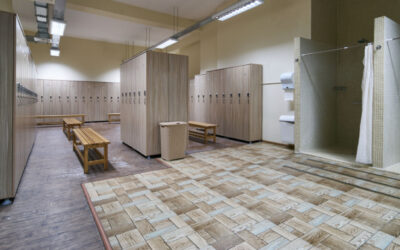By Corinne Murdock |
The Higley Unified School District (HUSD) will now allow for students to wear more revealing clothing, which parents have criticized as risque.
The district’s new dress code removed previous policy language prohibiting attire which “immodestly exposes the chest, abdomen, midriff, genital area, or buttocks.” The new policy prohibits exposure of undergarments or “undergarment areas” in relation to exposure.
One father, Ira Latham, wore a black sports bra with spaghetti straps as an “object lesson,” or visual example, of permitted attire under the new dress code as a criticism of the district’s judgment. Latham said that anyone who took issue with his attire for a board meeting should question among themselves whether it was appropriate for a classroom. Members of the audience appeared amused or visibly uncomfortable with the display.
“Now if you ask me it’s inappropriate for a board meeting,” said Latham. “If you have a dress code policy that allows this in a classroom it does not promote a safe classroom environment as well as limits the amount of distractions in the classroom. I can’t think of any place of work where I can walk in and be taken seriously in something like this.”
Board members Kristina Reese, Tiffany Shultz, and Amanda Wade voted for the policy.
Board members Michelle Anderson and Anna Van Hoek voted against the new policy.
Anderson pointed out that grievances brought up by the community about spaghetti straps and clothing measuring didn’t exist in the now-discarded policy. Anderson also shared that she surveyed “not conservative” or “less conservative” students, namely females, about whether that policy made them feel like their bodies were disrespected or sexualized; reportedly, those surveyed felt the opposite.
“I specifically asked the less conservative females if they felt like having a dress code with our current policy’s expectations — to cover the midriff, the chest, the buttocks — if it made them feel like their body was not okay. Unanimously, they were like, ‘No,’” said Anderson. “It’s important to know that not all females feel a dress code like ours makes them feel shameful or bad about their body.”
Anderson disclosed that some of the female respondents felt like pop culture, not dress codes, marketed the sexualization of females. She also pointed out that modest apparel is a standard outside of schools in nearly all jobs available.
“We are not saying skin is not professional. We are saying that there is a professional and respectable disposition that can show skin in moderation. We are a school district in which students are mandated to attend, we are not a parks and rec entity,” said Anderson. “In school, just like in jobs, there is a time and place for certain dress. Not all places of employment have the same expectations for dress, but the majority of different career fields in jobs available have dress codes that expect employees to cover their midriff, their bust, and their buttocks for decency, for the representation of the business, for safety, for camaraderie and professionalism.”
Anderson also read aloud from the dress codes upheld by the top-10 performing schools in the nation, which had modesty provisions in their policies.
Reese contended that the dress code policy change was a non-issue because students on most campuses were already violating the policy to some extent, namely girls wearing tops that show a little bit of midriff.
In a May board meeting discussing the policy, Shultz and Wade said that nixing the immodesty provision and allowing girls to expose more of their body would lead to less sexualization.
“It makes a female feel bad about their body, and that we’re saying that they need to cover up because of the way it might make someone else feel,” said Wade.
Wade said that the modesty provisions sexualizes kids, and implied that community members concerned with expansive sexual education and LGBTQ+ ideologies ought to be more against modesty-focused dress codes.
“I find the message that we are expressing to our children to look at their bodies in a sexualized nature, we routinely have people in the community come up and talk about how they’re concerned with our efforts to sexualize kids and, in my opinion, that’s what this [dress code policy] does, completely,” said Wade.
Corinne Murdock is a reporter for AZ Free News. Follow her latest on Twitter, or email tips to corinne@azfreenews.com.








